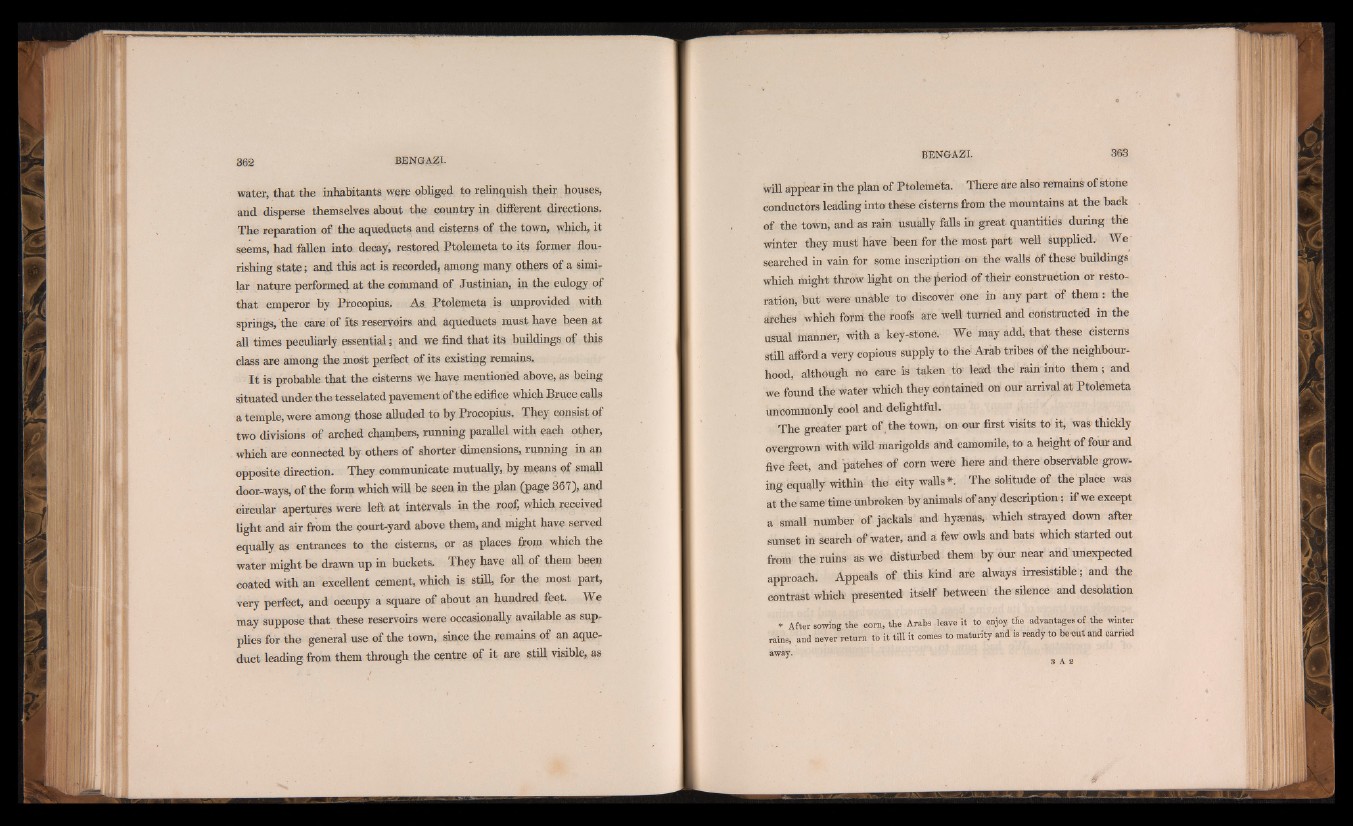
water, that the inhabitants were obliged to relinquish their houses,
and disperse themselves about the country in different directions.
The reparation of the aqueducts and cisterns of the town, which, it
seems, had fallen into decay, restored Ptolemeta to its former flourishing
state; and this act is recorded, among many others of a similar
nature performed at the command of Justinian, in the eulogy of
that emperor hy Procopius, As Ptolemeta is unprovided with
springs, the care of its reservoirs and aqueducts must have been at
all times peculiarly essential; and we find that its buildings of this
pi««« are among the most perfect of its existing remains.
I t is probable that the cisterns we have mentioned above, as being
situated under- the tesselated pavement of the edifice which Pruce calls
a temple, were among those alluded to by Procopius, They consist of
two divisions of arched chambers, running parallel with each other,
which are connected by others of shorter dimensions, running in an
opposite direction. They communicate mutually, by means of small
door-ways, of the form which will be seen, in the plan (page 367), and
circular apertures were left at intervals in the roof, which received
light and air from the court-yard above them, and might have served
equally as entrances to the cisterns, or as places from which the
water might be drawn up in buckets. They have all of them been
coated with an excellent cement, which is still, for the most part,
very perfect, and occupy a square of about an hundred feet. We
may suppose that these reservoirs were occasionally available as supplies
for the general use of the town, since the remains of an aqueduct
lading from them through the centre of it are still visible, as
will appear in the plan of Ptolemeta. There are also remains of stone
conductors leading into thèse cisterns from the mountains at the back
of the town, and as rain usually falls in great quantities during the
winter they must have been for the most part well supplied. We
searched in vain for some inscription on the Walls of these buildings
which might throw light on the period of their construction or restoration,
but were Unable to discover one in any part of them : the
arches which form the roofs are weft turned and constructed in the
usual manner, with a key-stone. We may add, that these cisterns
still afford a very copious supply to the Arab tribes of the neighbourhood,
although no care is taken to lead the rain into them ; and
we found the water which they contained on our arrival at Ptolemeta
uncommonly cool and delightful.
The greater part of the town, on our first visits to it, was thickly
overgrown with wild marigolds and camomile, to a height of four and
five feet, and patches of corn were here and there observable growing
equally within the city wafls*. The solitude of the place was
at the same time unbroken by animals of any description ; if we except
a small number of jackals and hyænas, which strayed down after
sunset in search of water, and a few owls and bats which started out
from the ruins as we disturbed them by our near and unexpected
approach. Appeals of this kind are always irresistible; and the
contrast which presented itself between the silence and desolation
* After sowing the corn, the Arabs leave it to enjoy- the advantages of the winter
rains, and never return tb it till it comes to maturity and is ready to bevut and carried